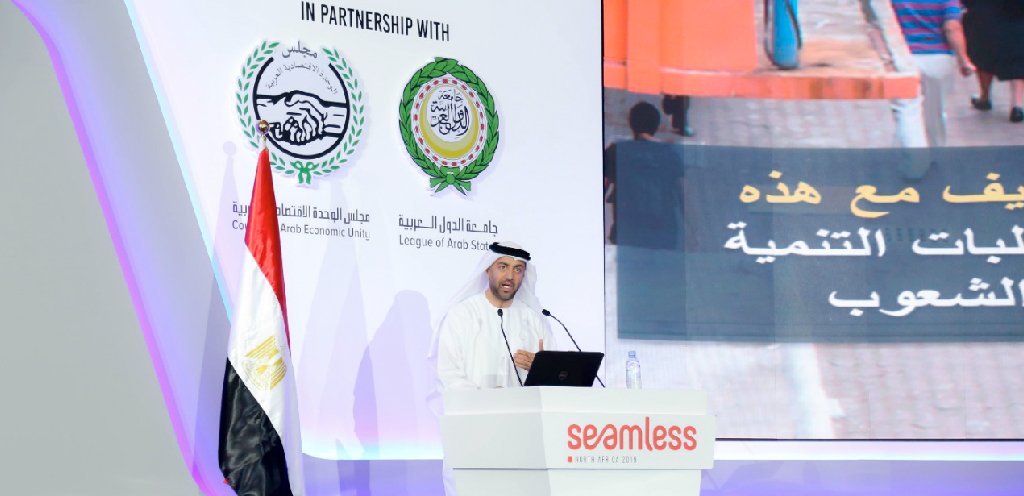
Dr. Al-Khouri: Preemptive measures taken by Arab governments, and building a common chamber for large technology companies, are important steps towards mobilizing digital economy in the region
H.E. Dr. Ali Mohamed Al-Khouri, Advisor, Arab Economic Unity Council League of Arab States Chairman of Arab Federation for Digital Economy, stated that financial technology systems, widely known as “fintech”, can support the efficiency and competitiveness of Arab governments’ systems, in addition, it can contribute towards further financial inclusion through availing electronic payment channels, and developing financial markets and stimulating investments. He expects that leaps and success of eCommerce, can push the markets towards changing production and marketing strategies, as well as customer service concepts, especially with the revolution of communication methods, and digital knowledge.
And during his speech on the second day of international fintech conference “Seamless North Africa 2019”, and in the presence of H.E. Dr. Tarek Amer, Governor, Central Bank of Egypt, and H.E. Ambassador Mohamed Al Rabie, Secretary General, Arab Economic Unity Council League of Arab States, Dr. Al-Khouri emphasized that fintech platforms managed to greatly influence the field of financial services, where financial service providers now provide services that used to be limited to banks and insurance companies, like e-payments, remittances, and crowd funding, fintech utilizes its ability to provide its products and services over the internet, overcoming geographical and location barriers, using innovative business models that go beyond the boundaries of traditional financial institutions that might see all what fintech does as impossible.
Dr. Al-Khouri explained that fintech is now pushing concepts that defy traditional practices of financial projects, where technologies like machine learning, automation, and natural language processing, and predictive analytics can improve the performance and productivity of financial institutions by rates of up to 50%, pointing to that fintech can reduce costs of financial institutions by almost 40 Billion US Dollars.
He pointed to that machine learning and robotics have been pushing innovative practices and business models, especially for administration and customer support, and a very good example of that is a branch of CCB bank ̶ China’s second largest bank ̶ in the Chinese city Shanghai managed to completely run the branch electronically in 2018, using robots that are backed with Augmented Reality (AR) and Artificial Intelligence (AI) technologies, this enabled those machines to completely avail different financial services like opening and closing accounts, money transfer, and wealth management. On the other hand, we see difficulties for traditional financial institutions to fulfil the requirements of individuals and companies, especially the startups.
The advisor of Arab Economic Unity Council added that the secret of fintech companies’ success, is understanding the youth mindset, as they represent 60% of the world population, and they are expected to be representing around 7 Trillion US Dollars of the financial assets by 2020. He pointed to that fintech contributes to further financial inclusion, where electronic payments grow at a very high rate, where revenues of purchases through smartphone applications exceeded 2 Trillion US Dollars in 2018, and expected to exceed 3 Trillion US Dollars in five years.
| About | |
|---|---|
| Initiatives | |
| Knowledge | |
| Services | |
| Media Center | |
| Contact |